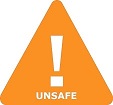Clarins Broad Spectrum Spf 20 - Sunscreen Care | Avobenzone, Homosalate, Octocrylene Cream while Breastfeeding

What is Clarins Broad Spectrum Spf 20 - Sunscreen Care | Avobenzone, Homosalate, Octocrylene Cream ?
Brief: Sunscreen
Can I use Clarins Broad Spectrum Spf 20 - Sunscreen Care | Avobenzone, Homosalate, Octocrylene Cream while breastfeeding?

Avobenzone and Breastfeeding
SafeNot much study has been done on effects of topical usage of Avobenzone during breast feeding however it is known to penetrate the skin in very limited quantity. Its not very likely to have adverse effects in breastfed infants.
Note: Study and data for tropical use only, Breakdown product causes relatively high rates of skin allergy hence stabilization is required.Warning: Tropical usage in breast area shall be avoided to prevent the Avobenzone passing orally in Infants.
Homosalate and Breastfeeding
UnsafeHomosalate has been found in mothers milk, its skin penetration rate is less than 1% in human and laboratory studies. Some studies suggest that Homosalate disrupts estrogen, androgen and progesterone levels. As not much study has been done on effects of Homosalate during breast feeding its recommended to use safe alternatives.
Note: Study and data for tropical use onlyWarning: Tropical usage in breast area shall be avoided to prevent the Homosalate passing orally in Infants.
Octocrylene and Breastfeeding
Safe
Based on the current available safety data, octocrylene used as a UV filter in cosmetic products at a concentration of 10% can be considered as safe. There was no evidence of any endocrine disruption potential from experimental studies which demonstrated no adverse effects on reproductive (e.g. oestrus cycle, epididymal and testicular sperm parameters) and developmental parameters. Effects on thyroid reported in repeated toxicity studies conducted in rats at very high doses are species?specific and not relevant considering the doses at which octocrylene is used in human.
Four studies on the transdermal absorption of octocrylene are available in the scientific literature, and an additional study is available in ECHA summaries of safety data. Dermal absorption studies of octocrylene showed that most octocrylene concentrations are found in the stratum corneum and that very few quantities are found in the epidermis (0.4%) and in the receptor fluid (<0.05%). In vivo, a very recent study in human volunteers showed systemic exposure to octocrylene with maximal concentrations ranging from 2.9 to 7.8 ng/mL under indoor maximal use conditions. Octocrylene has been found at very low amounts in human milk, and some metabolites of octocrylene were primarily detected in urine of volunteers using sunscreen products.
No systemic effects were reported after dermal exposure to octocrylene in rabbits at very high dose (534 mg/kg bw/day) compared with those used in cosmetic products. After oral exposure, effects on liver and thyroid were reported in a study conducted in rats at high doses (340 and 1085 mg/kg bw/day in males). These effects were investigated in an additional mechanistic study which showed that effects on thyroid were indirect and due to hepatic enzyme induction potential of octocrylene in rats at very high oral doses.
Based on available animal data, octocrylene does not induce developmental or teratogenic effects. In an extended one?generation reproductive toxicity study, only rats treated with the highest dose of octocrylene via oral route showed a decrease in the number of implantation sites and consequently a low number of pups. This very high dose of 550 mg/kg bw/day cannot be considered to be relevant to the dermal use of octocrylene as a cosmetic ingredient. Moreover, no other effects on male and female fertility and reproductive parameters such as oestrus cycle, epididymal and testicular sperm parameters were observed in all groups tested. Regarding pups, no effects on sexual and neurodevelopmental parameters were observed.
Note: Study and data for tropical use onlyWarning: Tropical usage in breast area shall be avoided to prevent the Octocrylene passing orally in Infants. In some rare cases it can cause skin allergy.
I already used Clarins Broad Spectrum Spf 20 - Sunscreen Care | Avobenzone, Homosalate, Octocrylene Cream and meanwhile I breastfed my baby should I be concerned?
If you observer abnormal behavior or any other health issue in infant then you should immediately call 911 or contact other contact other emergency service provider in your area otherwise closely monitor the baby and inform your doctor about your Clarins Broad Spectrum Spf 20 - Sunscreen Care | Avobenzone, Homosalate, Octocrylene Cream usage and time interval of breastfeeding.
My doctor has prescribed me Clarins Broad Spectrum Spf 20 - Sunscreen Care | Avobenzone, Homosalate, Octocrylene Cream, what should I do?
If your doctor knows that you are breastfeeding mother and still prescribes Clarins Broad Spectrum Spf 20 - Sunscreen Care | Avobenzone, Homosalate, Octocrylene Cream then there must be good reason for that as Clarins Broad Spectrum Spf 20 - Sunscreen Care | Avobenzone, Homosalate, Octocrylene Cream is considered unsafe, It usually happens when doctor finds that overall advantage of taking
If I am using Clarins Broad Spectrum Spf 20 - Sunscreen Care | Avobenzone, Homosalate, Octocrylene Cream, will my baby need extra monitoring?
Yes, Extra monitoring is required if mother is using Clarins Broad Spectrum Spf 20 - Sunscreen Care | Avobenzone, Homosalate, Octocrylene Cream and breastfeeding as it is considered unsafe for baby.
Who can I talk to if I have questions about usage of Clarins Broad Spectrum Spf 20 - Sunscreen Care | Avobenzone, Homosalate, Octocrylene Cream in breastfeeding?
US
National Womens Health and Breastfeeding Helpline: 800-994-9662 (TDD 888-220-5446) 9 a.m. and 6 p.m. ET, Monday through Friday
UK
National Breastfeeding Helpline: 0300-100-0212 9.30am to 9.30pm, daily
Association of Breastfeeding Mothers: 0300-330-5453
La Leche League: 0345-120-2918
The Breastfeeding Network supporter line in Bengali and Sylheti: 0300-456-2421
National Childbirth Trust (NCT): 0300-330-0700
Australia
National Breastfeeding Helpline: 1800-686-268 24 hours a day, 7 days a week
Canada
Telehealth Ontario for breastfeeding: 1-866-797-0000 24 hours a day, 7 days a week
